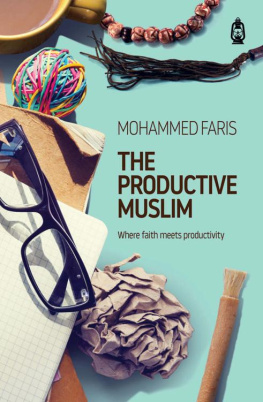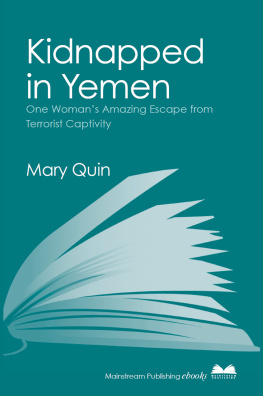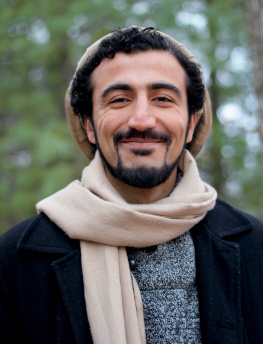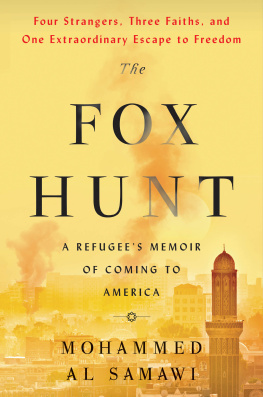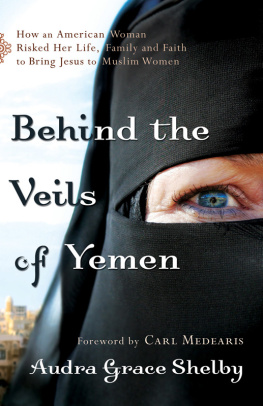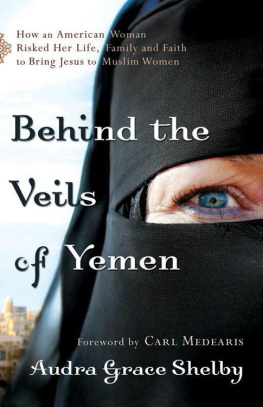
THE FOX HUNT
Mohammed Al Samawi, a Zaydi Shiaa Muslim, was born on 30 November 1986 in the old Yemeni city of Sanaa. Brought up to believe that the Jews were responsible for all his peoples troubles, his life changed when he read the Old Testament, friended Jews in Israel, and joined social-action groups aimed at promoting dialogue between Muslims and Jews. Soon, he started receiving death threats from his compatriots, and when he fled to the southern city of Aden he found himself caught up in a brutal civil war. Trapped and desperate, he could find no one to help him, until strangers from overseas pitched in and eventually saved his life. He escaped to the United States, where he now lectures widely to promote inter-faith relations.
Scribe Publications
1820 Edward St, Brunswick, Victoria 3056, Australia
2 John St, Clerkenwell, London, WC1N 2ES, United Kingdom
Published by Scribe 2018
Copyright Mohammed Al Samawi 2018
All rights reserved. Without limiting the rights under copyright reserved above, no part of this publication may be reproduced, stored in or introduced into a retrieval system, or transmitted, in any form or by any means (electronic, mechanical, photocopying, recording or otherwise) without the prior written permission of the publishers of this book.
The moral right of the author has been asserted.
This book is a work of memoir; it is a true story based on my best recollections and the information I have since received. The names and identifying characteristics of some of the individuals in this book have been changed to protect their privacy, and certain events have been adjusted for security purposes or compressed in service of the narrative.
Unless otherwise noted, interior images are courtesy of the author. Additional photo credit information: Map of Yemen: United Nations Department of Peacekeeping Operations. Chapters 1, 19, and 20 Karam Kamal. Chapters 3, 4, 5, and 6: New York Public Library. Chapter 11: Sallam/Flickr. Chapter 13: NASA. Chapter 21: T3n60. Chapter 26: Skilla1st.
9781925322798 (Australian edition)
9781911344988 (UK edition)
9781925548693 (e-book)
CiP records for this title are available from the British Library and the National Library of Australia.
scribepublications.co.uk
scribepublications.com.au
To my country.
To everyone whos different.
To all the people who said yes.
CONTENTS
CHAPTER 1
CHAPTER 2
CHAPTER 3
CHAPTER 4
CHAPTER 5
CHAPTER 6
CHAPTER 7
CHAPTER 8
CHAPTER 9
CHAPTER 10
CHAPTER 11
CHAPTER 12
CHAPTER 13
CHAPTER 14
CHAPTER 15
CHAPTER 16
CHAPTER 17
CHAPTER 18
CHAPTER 19
CHAPTER 20
CHAPTER 21
CHAPTER 22
CHAPTER 23
CHAPTER 24
CHAPTER 25
CHAPTER 26
CHAPTER 27
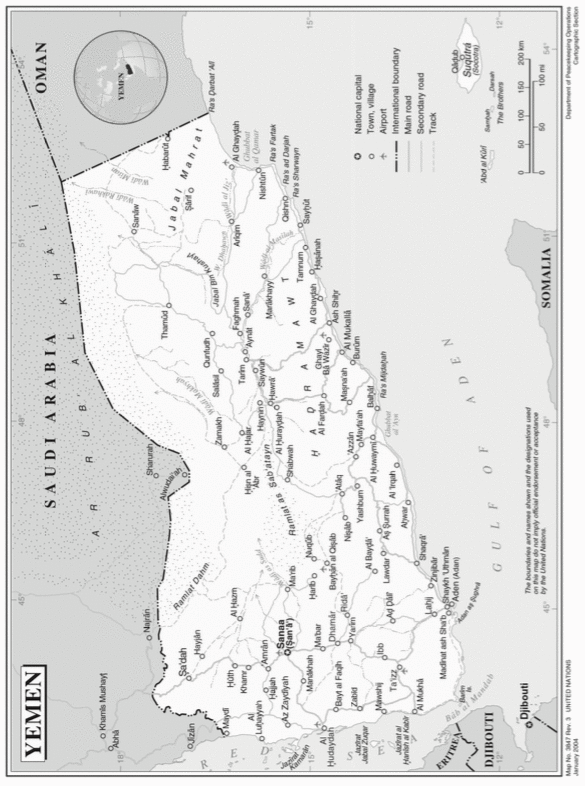
CHAPTER 1
WEAK TIES, STRONG BONDS
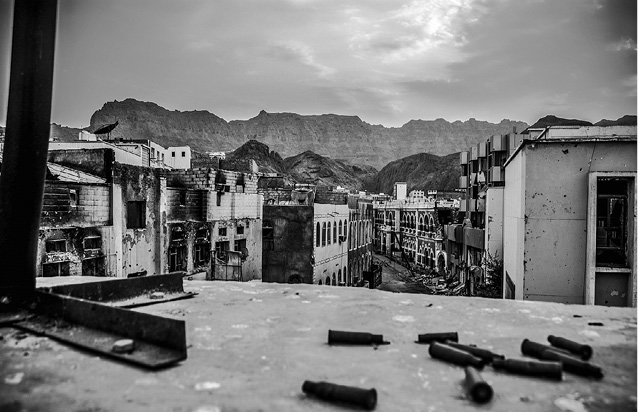
Aden, March 2015
I counted my steps. Three to get from the door to the wall; two between the toilet and the mirror. My new apartment in Aden was big for one person, but I hadnt planned on taking refuge in its bathroom. The gray-green light from the single fluorescent bulb scattered off the mirror, blanching the walls, the ceiling, the floor. It had nowhere to go.
Trapped.
My eyes, red-rimmed and shot through with blood, had been hollowed by sleeplessness and stress. Theyd retreated, withdrawn from the front lines, as if unwilling to watch Yemen tear itself apart. Rubble-strewn streets; soldiers and citizens shouting and firing weapons; social media emblazoned with the slogans God is great! Death to America! Death to Israel! Damn the Jews! Victory to Islam!
The power shut off. I glanced at my phone and tried to calm myself by taking inventory.
It was March 22, 2015. Seven days earlier Id fled my home in Sanaa, Yemens official capital city, to escape the threats on my life and the violence of the earliest days of what was now a full-on civil war. On one side was President Abdrabbuh Mansour Hadi and the loyalist forces; on the other were the opposition forces, the Houthis and their Supreme Revolutionary Committee, backed by the former president Ali Abdullah Saleh.
I thought I was running toward safety, but the violence followed me.
First went the airport from which Id departed, seized by the Houthis. Then came fighting between the Hadi loyalists and the Houthi rebels at the airport here in Aden. Would the bombing spread from there? Everyone prayed that the conflict would die down, but the fight was only just beginning. Was Yemen, the poorest nation in the region, about to become the battleground of a well-funded proxy war between Iran and Saudi Arabia?
Whispers flew from door to door. Iran, a Shia nation, was said to be funneling weapons to its fellow Shias, the rebels from the norththe Houthis. Meanwhile, Saudi Arabia, a Sunni nation, was supposedly backing President Hadi, a fellow Sunni. To make matters worse, the Sunni network extended to Al Qaeda in the Arabian Peninsula (AQAP) and the Islamic State of Iraq and the Levant (ISIL), both of which had started to claim control of various parts of Yemen. The Sunni-Shia balance of power in Yemen could help tip the Middle East in one direction or another; all these different groups with only the loosest affiliations seemed willing to unite in order to move that needle.
From my window, I watched as fighters patrolled the streets. There were only two roads out of the city, and both went around the airport, which was one of the centers of the battle; it didnt look like I could escape using either of them. The situation was delicate for everyone, and downright deadly for anyone with ties to Israel, Jews, or interfaith activism. I had all three.
As a peace activist who promoted understanding between Jews, Christians, and Muslims, Id been targeted before. But this was different. This was worse.
If anyone were to find out who I was, where I was from, or what Id been doing for the last several years...
Capture.
Torture.
Execution.
How much longer could I survive on little more than adrenaline and intermittent Internet and cellular connectivity?
I shut my eyes and rested both hands on the sink. My forehead touched the mirror and slipped down the glass in its own sweat. I ran my tongue across my cracked lips, resisting the urge to tear at the loose flesh with my teeth. My stomach roiled from hunger and worry.
A faint pop of gunfire pulled me back up.
I planted my bare feet on the tile floor and wondered if the impact of a shell could work its way up from the street to my fourth-floor apartment.
I hurried out of the bathroom back to the window, pressed my body against the wall, and peered around a small gap between the drawn curtains. The power lines formed a messy web. Just down the block, two men stood watch at what looked like an AQAP checkpoint. Their black shemaghs hid their faces. The wind wrapped their white robes around the bandoliers crossing their chests; dust devils danced at their feet. Their rifle barrels pointed skyward.
Why did I put myself in this situation? I thought to myself. Why did I leave my home in Sanaa?
Ana hemar . I am a donkey.
I wished that I was with my sisters, safe in my room, watching an old Hollywood movie. The good guys would win. The problem was that here, under so many layers of dirt and blood, the good and the bad were sometimes indistinguishable. Publicly, each group made righteous claims, but behind the scenes they were united by violence. The Houthis, the so-called rebels from the north, were heroes to some, terrorists to others. The Al Qaeda fighters, the foot soldiers from the south, had their own supporters, their own enemies. Good, bad. Right, left. Nothing was as it seemed.
Next page
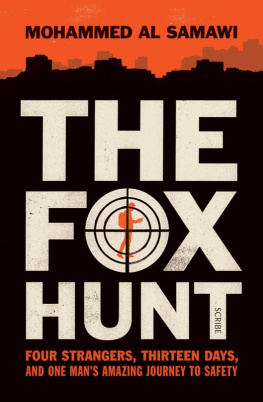
![Al Samawi - The fox hunt [Release date Apr. 10, 2018]: a refugees memoir of coming to America](/uploads/posts/book/163988/thumbs/al-samawi-the-fox-hunt-release-date-apr-10.jpg)
